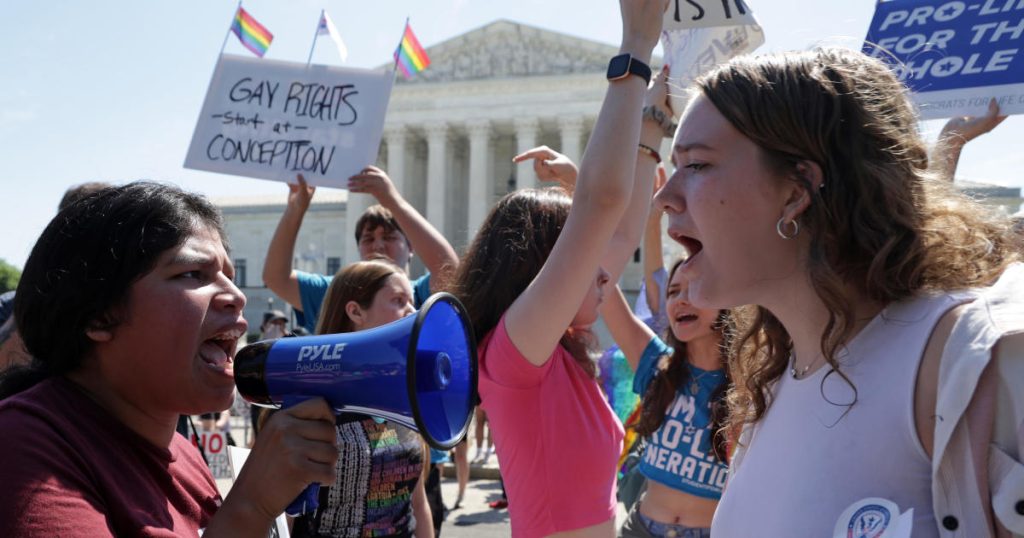In the upcoming 2024 presidential election, abortion is one of the key issues that could sway voters’ decisions, especially since the Supreme Court overturned Roe v. Wade two years ago, leading 22 states to restrict access to the procedure. Both presidential nominees, Donald Trump and Kamala Harris, have addressed their views on abortion and what the future might hold in terms of abortion access. Democrats hope that the issue of abortion access will energize voters to elect Harris, while Republicans have approached it as a state issue, though facing questions about a potential federal ban if Trump were reelected. A recent poll found that 60% of voters believe abortion should be legal in all or most cases, with 76% of women likely voters who support legal abortion favoring Harris.
Donald Trump’s stance on abortion has been somewhat shifting, though he has taken credit for the Supreme Court’s decision to reverse Roe v. Wade and has emphasized that the issue is now up to individual states. He has not openly supported a federal abortion ban but has hinted at possibly supporting restrictions up to 15 weeks. Trump has also criticized highly restrictive state abortion laws, such as Florida’s six-week ban, and expressed support for exceptions in cases of rape, incest, or maternal health risks. Despite initial support for a Florida constitutional amendment limiting abortion before fetal viability, Trump later backtracked and stated he would vote against it.
Kamala Harris, on the other hand, has made abortion rights a central aspect of her campaign, vowing to never allow a national abortion ban and to sign legislation restoring reproductive freedom nationwide if passed by Congress. She has linked conservative abortion restrictions to Trump, referring to them as “Trump abortion bans,” and has voiced strong support for women’s right to choose regarding their reproductive health care. Additionally, the access to in vitro fertilization (IVF) services has become a campaign issue following a ruling in Alabama that could potentially restrict IVF treatments. Trump has proposed a plan to require federal funding or insurance coverage for IVF treatments, while Harris has blamed Trump for any threats to fertility treatments and has emphasized the importance of a woman’s right to make decisions about her body and family planning.
Overall, the battle over abortion and reproductive rights is poised to be a significant factor in the upcoming election, with both candidates emphasizing their respective stances on the issue. While Trump has taken a more state-focused approach and has faced criticism from some conservatives for his evolving views on abortion restrictions, Harris has been steadfast in her support for women’s reproductive rights and abortion access. The outcome of the election could have far-reaching implications for abortion laws and access to reproductive healthcare services in the United States. Voters will face a choice between two contrasting visions for the future of abortion policy in the country.


